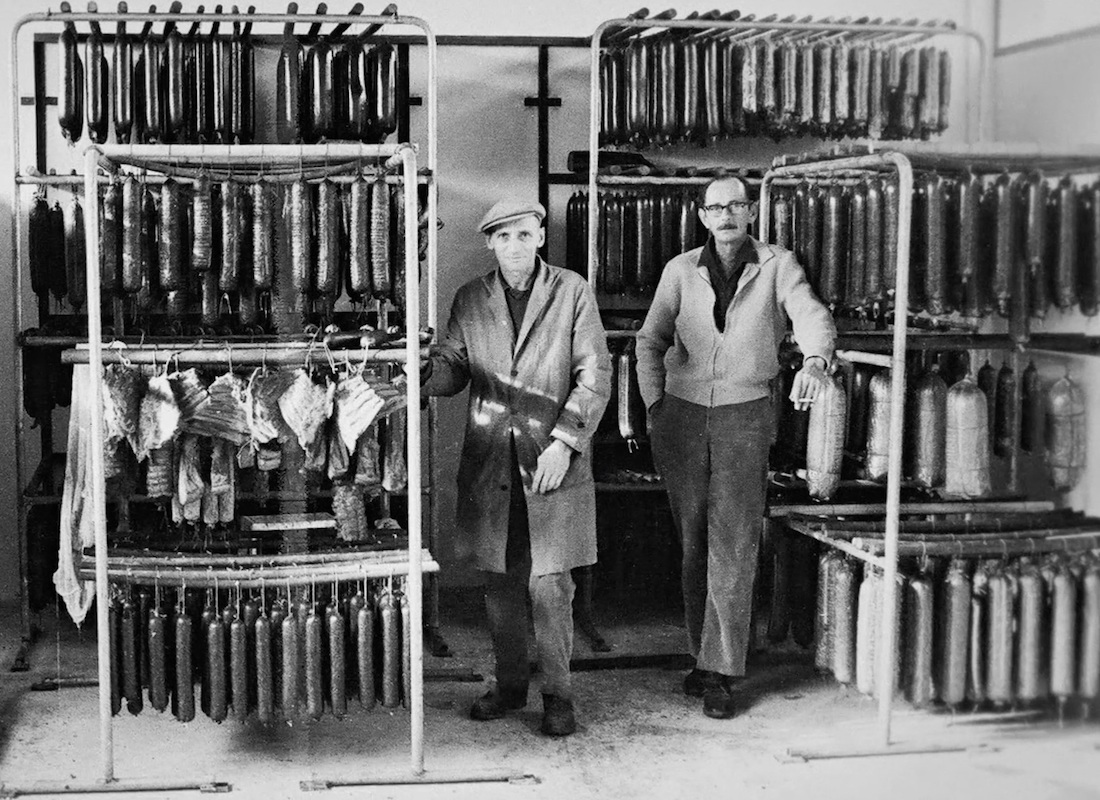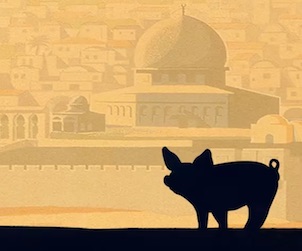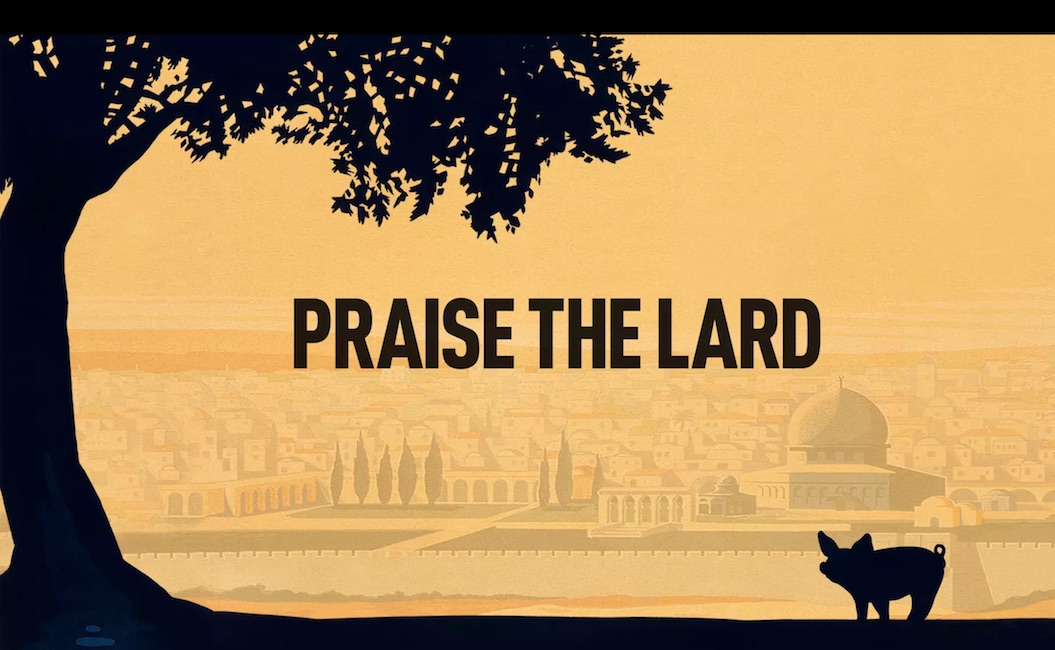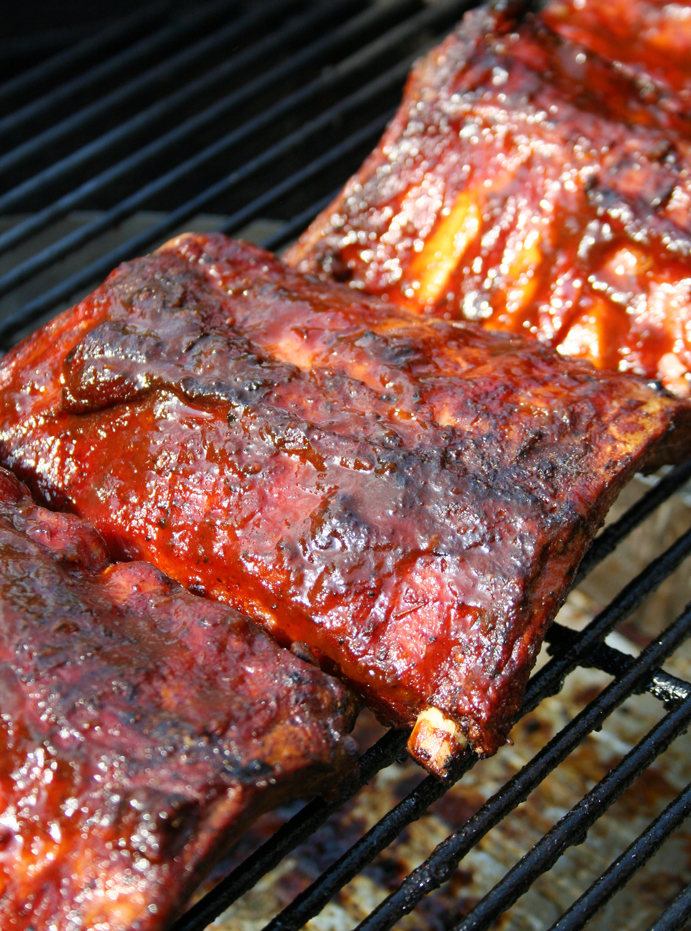Malcolm Jolley talks about pork in Israel with filmmaker Chen Shelach.

Still from Chen Shelach’s documentary Praise The Lard showing pork products at Kibbutz Mizra, Israel.
This year is the 25th edition of the Toronto Jewish Film Festival, which as its Director of Programming, Stuart Hands, told GFR will feature 105 films from around the world from May 4 to 14. Four of the those films are focused on food, including a Canadian contribution Bagels in the Blood, a short about the Shalafman family’s Fairmont Bagels in Montreal.
One of those films that’s caught GFR’s attention is Chen Shelach’s Praise The Lard about pork production in Israel, and it’s decline as Israeli society moves from its secular 20th century roots to a more religiously charged environment. The TJFF were kind enough to send me a screener, which confirmed Hands’ description of the film as “a wonderful piece of social and cultural history”, as well made things ostensibly about food often are.
I contacted Stelach on the phone from his home in Israel to talk about his remarkable documentary. Our conversation is recounted below.
This interview has been edited for length, style and clarity.
Good Food Revolution: I was contacted by the PR people for the Toronto Jewish Film Festival who said they were showing some movies about food, so I looked at the program and saw Praise The Lard, a movie about raising pigs in Israel and I thought, what is this? There’s pork in Israel? I had no idea.
Chen Shelach: I believe that most of the Jewish people know that there is pork in Israel. Or, I guess? But you’re one of the first guys I’ve talked to see the film outside of Israel because it’s a really new film, so I really don’t know what will be the response. It’s going now to Toronto and then to Europe and some other places, so I am very interested to see what people think about it.
GFR: Well, then I am very glad to have a scoop! And I can tell you that at least one foreign journalist thinks its a really interesting story. You grew up on a kibbutz where they raised animals, including pigs. And you, and everyone on the kibbutz, ate pork?
CS: Yeah.
GFR: Then, more recently there was this incident of an IDF soldier being put in jail for eating a ham sandwich. Is that why you made the movie?
CS: I thought about making a film about Kibbutz Mizra for a long time. It was very unique, and our kibbutz became the symbol of the pork industry in Israel and the new Jewishness in Israel, or the making the new secular Jewishness in Israel. This my third film about the place that I came from. So, when this happened to this soldier, I knew this was the time. Things are getting weird. We couldn’t believe that Israel, which is a democracy is not supposed to be a religious country. It’s supposed to be a free country, and yet a soldier was put in jail for eating a sandwich. That was a clue for me that I was becoming part of a minority and Israel is going in another direction from what my parents or my grandparents wanted and believed it was going in. The pork for me was just the way to tell that story. This is my way of telling the story from the factory that I was working in in my kibbutz, but you tell it another way. The problem is that Israel is becoming more and more religious.
GFR: From the perspective of a viewer from Canada, or maybe the United States, I don’t think we see the secular Israel that you describe, or that’s in your film, very much on the news. We tend to see, or read about, the extremes and extremists, especially if, like me, you’re not Jewish.
CS: It’s one of the biggest issues in Israel: the mix-up between religion and democracy. It’s a strange country, if you look from the outside. In some ways it’s a very religious country. But in other ways it has some of the greatest freedoms for homosexuals, for instance. So, it’s like some kind of weird mix, and the pork is one of the weirdest. In most of the world, you can talk about pork, whether you eat meat or not, without challenging all the traditions and customs of your people. If you’re eating pork, you’re just eating pork. Here, it’s like you think, I am a man like this that believes against pork. Pork in Israel is not something simple. What you think about pork in Israel says something very deep about you.
GFR: And obviously it’s deep enough to make some people very upset. Upset enough to put a man in jail.
CS: Yeah. You know, the army did not know how to treat this. When I was in the army we didn’t have this problem. But, after a few days they did get him out of jail. They thought about it and said, OK this is enough. We are not going into what people put into their own sandwiches! There’s no way there will be pork in the dining room on the base, but if someone gets his lunch bag from his grandmother and she gives him ham, it’s OK. Let everybody eat what they want.
GFR: Israeli food is having a bit of a moment here, in the UK and in The States. In London, I went to the Palomar where chef Tomer Amedi uses pork and shellfish. He came from the kitchen of chef Uri Navon at Machneyuda in Jerusalem, who is famous using pork and scallops and shrimp. Is this part of a backlash? Or part of something linked to Praise The Lard?
CS: I don’t know a lot especially about these restaurants because I haven’t been, but what’s happening now in Israel is that there are restaurants taking out the pork. Not because there is a law, but because eating pork is getting down in Israel. One of the reasons is that the Russian people who came in the 1990s, who ate a lot of pork, are now in the next generation and they married Israelis from other cultures who don’t eat pork. So, if one of the couple does not eat pork, in the home there will not be pork. Other things, like shrimp or seafood that is also not kosher, like pork, doesn’t have this myth that pork is the worst thing that Jewish people could eat. So people eat the seafood, but they won’t touch the pork.
GFR: That’s interesting. So there’s a hierarchy, with one higher than the other. You can eat a shrimp but never pork.
CS: It’s become a symbol. You know, in the film one of the religious leaders had a hard time to even say the word. He couldn’t believe that I could touch it. [Laughs.]
GFR: And you’re still alive, and doing well.
CS: Yes, and he’s still alive too, which is good.
Chen Stelach’s film Praise The Lard will have its Canadian premier at The Toronto Jewish Film Festival on May 5th at the Cineplex Cinemas Empress Walk in Toronto.








